Blog: Abundant Water's Social Business Model: How does it work?
I have been working with Abundant Water for the past four months as a Volunteer Program Officer, where I have had the opportunity to work with the Program Manager in Laos. What first interested me in working with Abundant Water (AW) is the focus put on the sustainability of its projects, which continues to be a feature that is visible in the everyday work of the NGO.
How Abundant Water’s model enables sustainability in the solutions it provides
When working in development today, handing out a new technology is insufficient, especially with the important ongoing development of civil society in developing countries, where local associations are being strengthened. This in turn brings questions around the role and legitimacy of international NGOs. However, it seems to me that international NGOs still have a strong role to play in contributing to development objectives and priorities, specifically to ensure the sustainability of projects and support the growth of civil society by providing tools and means to enable projects to be efficient and lasting. This is what is illustrated by the famous quote, “If you give a man a fish he will eat once, if you teach him how to fish he will eat all his life”, and that is the work that is being deployed by AW.
Indeed, Abundant Water’s work is not just about making and delivering ceramic water filters. In each project, filter installations are accompanied by comprehensive training and awareness-raising activities related to WASH issues. AW not only teaches communities how to have access to safe and clean drinking water, but also provides the necessary means to ensure a long-lasting solution.
This process developed by Abundant Water can be seen in a variety of ways:
● A strong emphasis is placed on raising awareness of clean water (hand washing, water treatment, filter maintenance) which is provided through training for families in target households and children in schools.
● WASH training sessions are held for the primary people concerned on how to maintain and use the water filter, before filter installation.
● The availability of a phone number in case of questions or issues with the installation, thus enabling the NGO to act quickly if there is any issue with the filter installation or clarify any doubts the recipients may have.
● A strong Monitoring & Evaluation framework to quickly gather feedback on any problems related to how the filters are used. For example by calling the beneficiaries a few weeks after the installation, developing surveys that provide information on how filters are being received and used at different time periods, and regular water quality testing to ensure distributed filters continue to meet quality standards.
● The development of a multilevel vendor network in order to ensure the availability of new filters when expired filters need to be replaced. AW’s vendor training process helps secure a strong vendor network, which is one of the cornerstones of sustainability. This helps to create a market to spread the use of filters while also enabling recipients to have a local point of contact if any intervention or support is needed. In 2019, over 1,200 filters were distributed through AW’s vendor model in Laos alone, which illustrates a successful application of the technology by Laos’ growing civil society.
For me, AW’s work today shows how NGOs should be working: in a more sustainable and long lasting manner, in which the aim is not to secure AW’s indefinite position in the country, but to provide all the tools for local civil society to spread practical solutions independently, a vision that is to me often forgotten by international NGOs.
Written by Juliette Richard, Abundant Water’s Volunteer Program Officer
Juliette with Laos Program Manager Keith and the Abundant Water staff in Vientiane.

